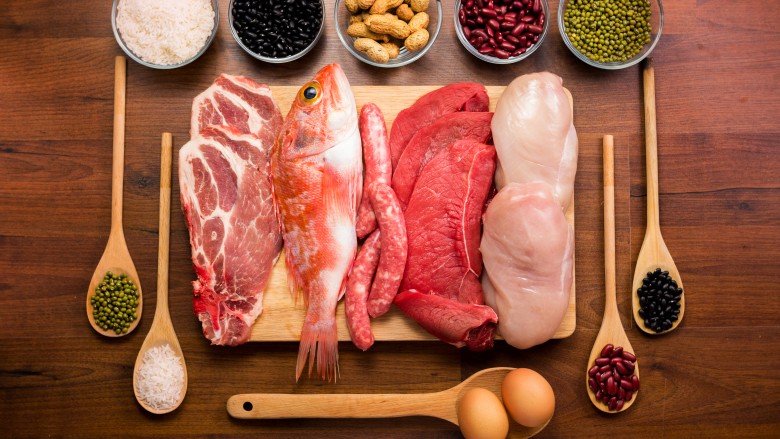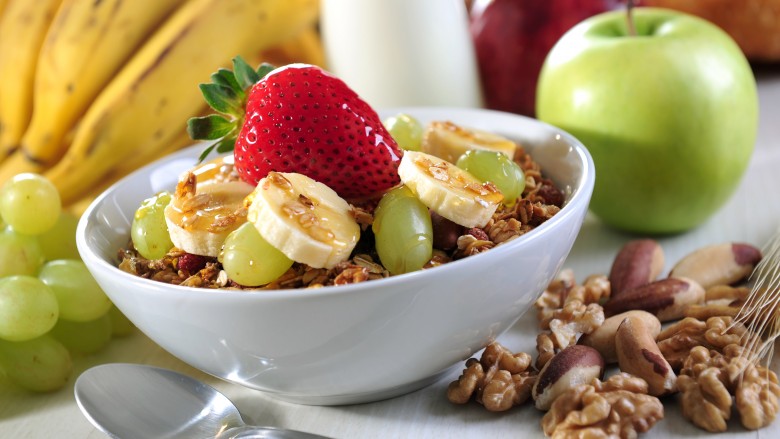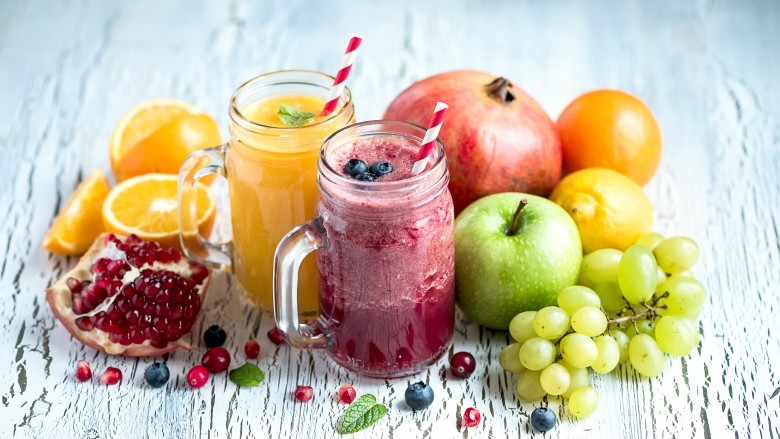Foods That Suppress Your Appetite
Whether you're trying to lose weight, maintain a healthy diet, or both, you may run into some major obstacles with choosing the right foods and a healthy amount of these foods. There are benefits and consequences to everything you put into your body, but the important thing to remember is the amount is just important as the food itself. Eating too much of anything is never a good thing, so how can we suppress our cravings?
Thankfully, curbing your appetite does not mean skipping meals entirely. It does mean cutting out the unnecessary carbs and fats, portioning your foods, and making sure you're not overeating. "I personally don't believe in dieting; I encourage my clients to fuel their body based on expected performance. Just like a high-performance sports car our bodies demand the best fuel for optimum performance," says Fitness/Life Coach and Trainer, Myke Collazo.
Where do these cravings come from?
Our cravings are caused by a hormone called ghrelin. Ghrelin is released when we ingest foods and liquids and then begins to manage our energy needs. According to Annals of Surgery, it is a brain-gut peptide, which means it's not only found in the gut, but also in other nerve endings. Your brain tells you when you're hungry even if you just ate. Specific foods will suppress your appetite, and tell your brain and your stomach you are full.
Fill up on water before a meal
Before you even decide what you want to eat, the best way to prepare yourself for a meal is to start with water. Collazo recommends at least 12 ounces of water before every meal to help feel fuller faster, but studies have shown those who drink roughly 19 ounces of water before a meal will consume 22 percent less than those who do not. So, if you know you're going to a large sit down dinner, take a bottle of water with you and drink it on the way. Many people often mistake thirst for hunger. Sipping on water throughout the day can also keep your stomach from ever becoming empty.
The importance of protein intake
Collazo explains that adding more protein in your diet is important for many reasons, like it "can help you build muscle, increase feelings of fullness, and I recommend it should be about 20–30 percent of your total calorie daily intake." Leaner meat, poultry, beans, eggs, and fish are important foods high in protein that will help you feel fuller.
"The biggest mistake people make is skipping breakfast because that first meal dictates your metabolic rate for the rest of the day," Collazo reminds us. So, try to start your day with protein and it will begin to curb your appetite for the rest of the day. A study in The European Journal of Clinical Nutrition showed that individuals who ate eggs for breakfast consumed up to 438 less calories throughout the day than those who started their day with an equal-calorie breakfast like cereal.
"...greasy foods will make you feel heavier and tired because unhealthy foods require so much more to break down. We want our bodies to have less body fat more muscle hence we must consume protein to fuel muscle growth," says Collazo.
Fibers stretch the stomach
Believe it or not, insoluble fiber has no calories. Eureka! Fiber will actually stretch your stomach so you feel fuller, but you've eaten less to get that way. Wheat bran is one of the highest sources in fiber. Fruits, vegetables, and nuts are also high in fiber and volume and low in calories. But be careful, if you don't drink enough water while increasing your fiber intake, the fiber can create a blockage in your digestive track, causing cramping and stomach pains.
Adding other high-fiber foods, like oatmeal for example, to your breakfast can also help suppress your appetite for the day. This is because oatmeal increases an appetite-regulating hormone called cholecystokinin. Cholecystokinin or CCK is released by omega-6 fatty acids found in nuts and oats.
An apple a day keeps the hunger away
More specifically in the high-fiber food group are apples. Apples help you avoid the "sugar crash" that can leave you wanting more food. This is because of the fiber apples contain called pectin. Studies show that pectin reduces the amount of sugar that can be absorbed into the bloodstream, therefore making it one of the best snacks before or after a meal.
Solids over liquids
Eating solid foods over liquids can also help keep you fuller longer. One study reported that individuals who consumed liquids as a meal emptied their stomachs quicker and then felt hungry against sooner than those who ate solid foods. Eating solid foods also requires more chewing, which then gives the brain more time to realize the stomach is full.
If you do choose liquids over solids, coffee is your best bet. Believe it or not, coffee — especially decaffeinated, can slightly decrease hunger and increase a hormone called peptide YY. PYY has shown to reduce appetite.






